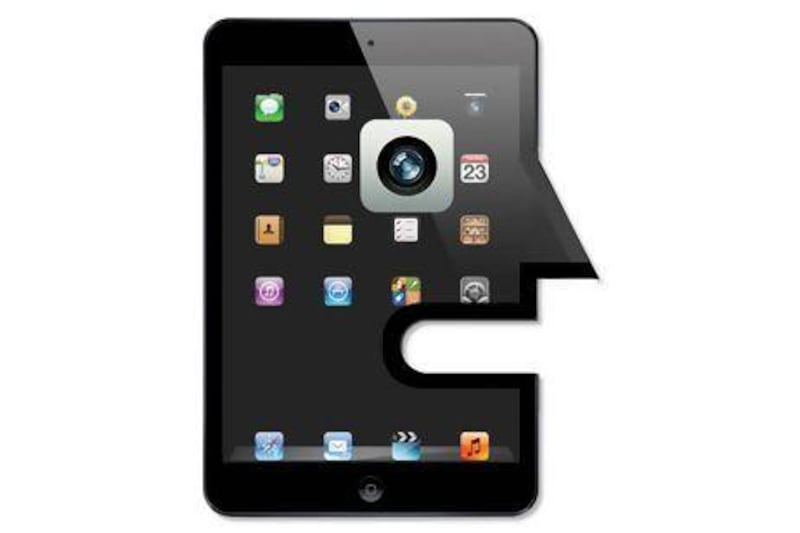Tech trouble: neck pain
We know of carpal tunnel syndrome, but today's talk-of-the-town is "text neck", the pain caused by constantly hunching over our smartphones and tablets, head tilted forward, shoulders curved. According to a study cited by CNN, the American physical therapist Dr Dean Fishman found that for every inch you tilt your head forward, the pressure on your spine doubles, which can pull it out of alignment.
The physical therapist Dr Michelle Collie found that text neck can create metabolic problems because slouching reduces the capacity of our lungs by as much as 30 per cent.
Tune out: If your job requires you to constantly check your mobile phone, buy a headset.
Fishman has created a Text Neck mobile phone app, which offers "immediate real-time feedback" on whether you're in the right posture.
Tech trouble: social skills
Interrupting conversations in real life to tap away at our gadgets - it's become the new normal. With the internet as a place to escape, some have forgotten how to properly relate to the world. And because online communication doesn't require face-to-face scrutiny by the person we're talking to, what we say is not always truthful or sincere.
A study by the University of Maryland prohibited 200 students from using any gadget for 24 hours. The majority of respondents reported feelings of distress and sadness.
Tune out: Take control - we've forgotten we can switch off our gadgets anytime.
Tech trouble: eye and ear strain, insomnia
A study conducted by Northwestern University found that using earbud headphones could lead to hearing damage.
Researchers also found that while staring at a screen won't cause permanent damage, it can give you headaches or make existing eye problems worse.
In a study by the University of Salford, two-thirds of 298 respondents said they were unable to relax or get a good night's sleep after surfing the web. The blue light from screens can suppress the hormone melatonin, which helps regulate sleep.
Tune out: Use larger headphones instead of those that go inside the ear. Set a rule to not read from gadgets an hour before bedtime.
Tech trouble: compulsiveness
Mobile phones sit on the table at dinner and on nightstands as we sleep. That's how addicted we've become - with a compulsion to constantly check in on what's happening.
Heavy technology use also affects our brain's ability to concentrate and process information.
Tune out: No phones on the dinner table - and no exceptions, even if the kids say, "But everyone else …" Reintroduce children to normal interaction.
Working on a desk from 9 to 5? Take a few minutes each day to get up and get away from your cubicle. Walk a flight of stairs, close your eyes for a minute, breathe. Consider it a resetting of your brain.
Tech trouble: negativity
The anonymity of the internet has emboldened some to be more aggressive and cruel than they are in reality. The web is also home to trolls, people who intentionally post inflammatory messages online to provoke emotional responses from readers. In turn, we let ourselves be remarkably affected by these negative remarks, outweighing the "Likes" and the more cheerful content.
Also, a recent study by the University of Vermont revealed that usage on Twitter of negative terms such as "greed" and "suicide" has increased in the last three years.
Tune out: Cultivate self-awareness - what's really important? - as well as the ability to edit out the negativity of others.
Tech trouble: radiation
Several studies suggest heat exposure from gadgets can lead to skin cancers or, for men who routinely rest laptops on their laps, infertility. A University of Washington study discovered that the radiation emitted by mobile phones fractured the DNA of brain cells in rats.
The European Environment Agency, the European Union's environmental watchdog, warned that mobile phone technology "could lead to a health crisis similar to those caused by asbestos, smoking and lead in petrol".
Tune out: It comes down to limiting usage. If you can't help it, make sure to put your laptop on a table. Avoid putting your phone inside your chest or trouser pockets and don't sleep beside it in bed.
The New Delhi-based Cogent EMR Solutions has developed an anti-radiation mobile chip, mobile case and laptop cover, reflecting radiation from gadgets.





